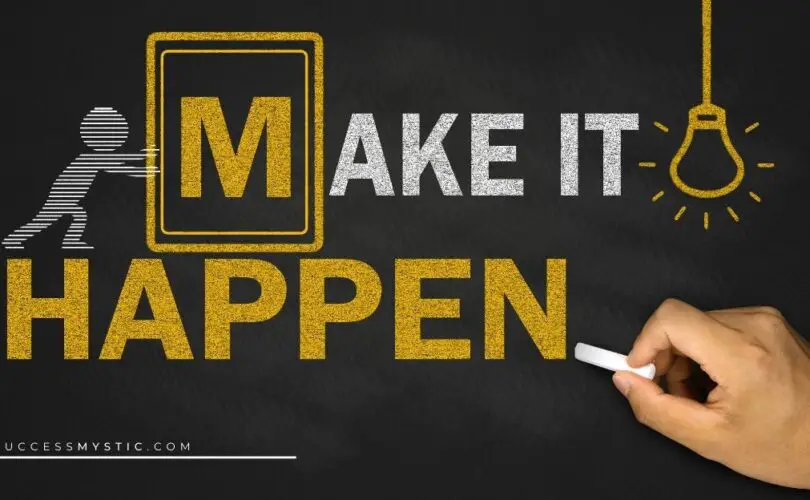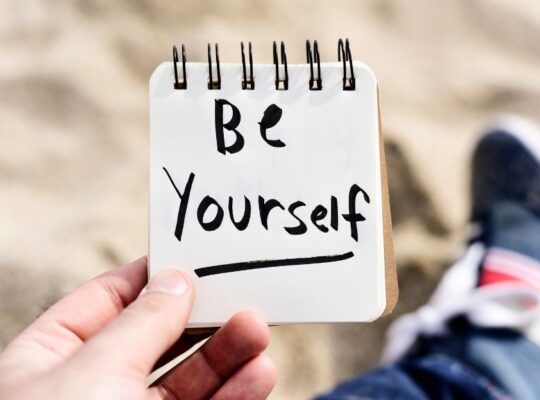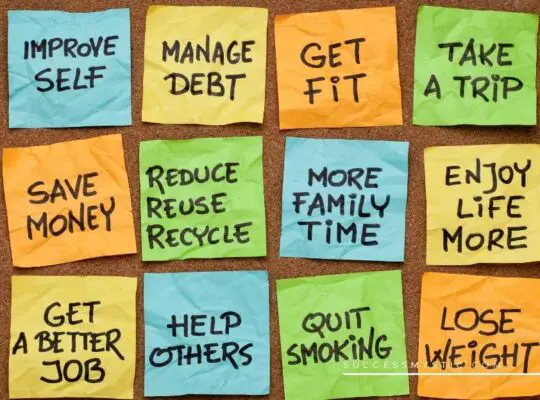If you are looking for ways to improve your emotional self and build competencies that can raise your emotional intelligence, we have identified 25 personal challenges you can set for yourself to help you increase your emotional awareness and improve your relationships with others.
What exactly do we mean, though, by emotional intelligence? This construct is a form of social intelligence and encompasses your ability to understand and navigate your own emotions, to recognize and empathize with the feelings of others, and to use your emotions to help guide your thoughts and actions.
Emotional intelligence can help you accomplish your goals as well as be a better colleague, partner, parent, and friend.
The Skills of Emotional Intelligence
Emotional intelligence is not just one skill. It is, instead, the combination of many different competencies that combine to provide you with emotional intelligence.
These competencies can be grouped into four major categories, including self-awareness, self-management, social awareness, and productive relationship management.
When you make efforts to improve your emotional intelligence, you can enjoy many benefits across all aspects of your life. In addition to having more relationships and more meaningful relationships, emotionally intelligent people are often able to achieve more, even when they have fewer intellectual skills or life experiences. Emotional intelligence can benefit both your personal and professional life.
Emotional Intelligence Skills
The skills involved in emotional intelligence are ones you can develop and practice, providing you with increased awareness of not only yourself but of others, and helping you make better, healthier decisions in your life.
Those with high emotional intelligence exhibit skills in nearly all of the competencies, particularly in using these thirteen skills.
- Think about your feelings- Self-awareness of your emotions, including the cause and effect of them.
- Think before you react- Allowing time to process your feelings, so you do not make decisions solely based on them.
- Control your reactions to emotions- Exercising control over your thoughts about your emotions as well as your response to emotional situations.
- Accept critical feedback- Understanding that criticism is an opportunity to learn and grow.
- Be authentic- Allowing your principles and values to guide your life, not compromising yourself for others.
- Practice empathy- Connect with others through empathetic thoughts and actions. Suspend judgment and look for alternate perspectives.
- Appreciate others- Provide acknowledgment and appreciation for others to help build trust and communicate praise.
- Provide helpful feedback- Offer constructive criticism that is aimed to guide improvement while also maintaining the person’s dignity and trust.
- Accept when you have wronged- Apologize when necessary, which shows your humility and ability to learn from your mistakes.
- Provide forgiveness- Release resentment, which can keep wounds from healing, and move on with your life.
- Honor your commitments- Keep your word when you make promises to others, which earns you a reputation for being trustworthy and reliable.
- Help others- Providing assistance to others helps them as well as you. A willingness to lend a hand shows your character and inspires others.
- Protect yourself- Awareness of others’ motives and intentions keeps you safe from emotional sabotage and other darker motives.
No matter your own emotional tendencies, personality, or current emotional state, you can learn these skills and practice them regularly, which will raise your emotional intelligence.
The 25 personal challenges outlined below are designed to provide learning experiences that will increase these skills and others that comprise your emotional intelligence.
25 Ways to Challenge Your Emotional Self
#1. Get to know your emotions.
Really focus on observing and understanding all of your emotions, especially the difficult ones.
- What triggers them?
- Which people are more likely to bring about which feelings?
- Why do you respond emotionally in some situations but not others?
- Do your emotional responses accurately reflect how you want to feel, how you want others to see you?
Start an emotion journal to record your feelings and keep track of patterns in your emotions that can help you understand why you react in specific ways.
Knowing your emotions, being able to name them, helps you better control your reaction in difficult situations, and it gives you the ability to decide if your feelings are helpful or harmful to your growth.
#2. Focus on your body as well as your mind.
Emotional strength and stability are as much about your physical health as your mental health. Take care of your body, and practice healthy habits daily. Select a healthy lifestyle choice you want to cultivate and make a habit and work diligently on it for at least 30 days.
Notice how healthier choices improve your emotional state and honor your victories when you are able to use your rational thinking to overcome negative emotions that encourage you to make poor health choices. Challenge yourself to develop healthier habits, then notice the impact these have on your emotional self.
#3. Express at least one feeling each day.
Expressing your emotions allows for release, which permits you to move on. You can be human, express your feelings, and be a healthy person. The trick is finding ways to express those emotions that don’t cause harm to other’s feelings.
Look for new ways to show your emotions that allow you to get your feelings out, and then focus on moving on with what you have learned from the experience. Embrace your feelings for what they teach you about yourself, but don’t wallow in them too long.
#4. Be compassionate toward yourself.
We are often harsher in our judgment of ourselves than we are of anyone else. Instead of judging your reaction to a situation or person, look at your emotions through the lens of curiosity and self-compassion.
What do your emotions tell you about yourself, what can you learn from this situation about your own actions or behaviors? Become a detective rather than a prosecutor, challenge yourself to turn negative self-talk into questions that seek to find answers.
#5. Put yourself out there.
Taking emotional risks can make you stronger. The emotions that make you uncomfortable are the ones that will likely push you into stronger, healthier places in your life. Start with selecting emotional risks that are manageable, and once you’ve conquered a few, take on bigger challenges. Keep pushing yourself to confront those feelings of uncomfortableness, which is where learning and growth take place.
#6. Be genuinely interested in others.
Just as emotional intelligence is about knowing yourself better, it is also about knowing others and their emotions. Make genuine efforts to get to know people, which can help you recognize and acknowledge their feelings. This helps you build empathy, which is a large part of emotional intelligence.
Challenge yourself to be more of an active listener to others, paying attention not only to words but body language. Ask questions and try to see situations from the perspective of others whenever possible. Listening is a skill we should all practice regularly, and it can improve your relationships and help you develop empathy.
#7. Give assistance to those in need.
When you do things for others, it not only helps them, but it also provides you with a boost. Giving to others bolsters your confidence in your own skills, helps you appreciate your life and what you have, and allows you to develop empathy for others.
When you help others, it increases your resiliency, as you see new pathways out of hard situations, and you understand that it is okay to ask for help yourself when it is needed. Try to do something at least once a week for someone else, and you will start to notice the difference it makes in your life, too.
#8. Observe any patterns in your own behavior.
Are there patterns to your negative emotions or behaviors that can help you become more emotionally intelligent? Look for times when you experience the same type of reaction, examine the people you continue to choose to care for but that disappoint you in some way, and observe choices you continue to make, despite negative outcomes.
What can you learn from these patterns? Learning from your past experiences, mistakes, missteps, and trends is crucial for improving your emotional responses and behaviors in the future.
#9. Get those negative emotions under control.
While it is okay to experience negative emotions, how you allow those emotions to affect your judgment and behavior is vital for developing emotional intelligence.
When you are able to recognize and then control your negative emotions, you are more likely to make rational, thoughtful choices and think carefully through a problem to find possible solutions.
The next time you feel that swift reaction of negative emotions, stop what you are doing and work through the emotion first before you make any decisions or act in any way. Negative emotions make it hard to be rational as well as to accept feedback from others, so be aware of them and cognizant that you need to control them before making decisions.
#10. Learn how to tell others how you feel.
Being able to express painful emotions appropriately is a part of emotional intelligence, too. Expressing your feelings means you are honest with yourself and others about how you feel, which can help build trust and build better relationships with others. It is essential to know when to share your emotions with others as well as how, so that you don’t hurt others’ feelings. Practice disagreeing without being disagreeable, look for moments to say no without submitting to feelings of guilt and stand up for yourself when necessary. The more of these types of encounters you have, the easier they will be in the future, so practice the hard conversations when you can.
#11. Laugh more.
The more you surround yourself with happy people and engage in activities that bring you genuine joy, the happier you will be. Find things to do that make you genuinely laugh, which will release happy hormones that boost your mood and help you maintain a positive mindset. Laughter brings you closer to others, and when you surround yourself with those that make you laugh, you feel more positive about your future.
#12. Accept your past for what it has taught you.
Living in the past can keep you from developing emotional stability and health. Your past struggles and missteps are what made you the person you are today, so celebrate your history instead of living in regret. You don’t have to discount the turmoil and struggle of the past to move past it.
Honor the strength it built in you and focus on how you can apply those lessons to making healthier choices for the future. Moving on from the past can be a difficult journey from some, so work on it a little each day, and focus on what you have learned and gained from those experiences rather than reliving the negative emotions and behaviors.
#13. Embrace failure.
When things don’t go as planned, when life has other plans than your success, it is important that you react positively. We all fail in life at some point or another, and you have choices in how you respond to and accept those challenges. Adversities and setbacks are opportunities to learn and grow, nothing more.
If you continue to make the same mistakes again and again, you are not learning from your experiences, not engaging in self-reflection that would help you make better choices. All experiences, good and bad, teach us something. Whether you internalize those lessons is up to you.
#14. Work on your body language.
In addition to your words, your nonverbal language also tells others a great deal about you. Your facial expressions, mannerisms, tone, posture, and much more point to much more about yourself than you may realize. Watch how others use their body and convey emotions without words, Then, examine your own nonverbal cues to determine if you are sending the messages you want others to receive.
If your feelings are manifesting themselves in physical ways through your posture, facial expressions, and other cues, this could be a sign you are not dealing with your emotions as well as your thought or that you may need to examine how you are really feeling about something more closely, too. Ask for feedback on your nonverbal communication from others whom you trust and from who you would accept feedback.
#15. Visualize your emotional toolbox.
A useful exercise is to imagine a toolbox in which you keep all the skills you need to help you cope with life’s challenges and emotions. These tools are ones you acquire over time and are given to you by the experiences that have tested you in the past. The strategies represented by each of these tools have helped you grow into the person you are today, and each is responsible for your happiness and well-being.
When you face a new challenge, you can conjure up this mental image to help you consider all the tools you have at your disposal for dealing with your present dilemma. Knowing you have these tools available is sometimes all you need to have the confidence to move forward.
#16. Be open-minded whenever possible.
Lowered emotional intelligence often results in narrow-mindedness and a closed way of thinking. When you are open minded, you listen more willingly to other’s perspectives and value alternative points of view. When you are open minded, you try to put yourself in other’s shoes, which garners trust and respect from those around you.
Being open-minded results in a healthy self-awareness, too. One way to challenge yourself in this area is to observe others’ reactions in social situations. Compare this to how you would react and consider the views and perspectives that informed their response. You can challenge your own beliefs as you explore new ideas and points of view, which will benefit your relationships with others.
#17. You need support.
A healthy support system is crucial for emotional well-being and stability. Create a network of people in your life that support and encourage you and be open and willing to share yourself with these people. They should be willing to help you improve, and you should be willing to do that for them, as well. You need people you can turn to when you need help. A challenge for this is to rid yourself of those people in your life who bring you negative emotions, who you don’t trust, and who do not have your best interests at heart.
Look for patterns in your interactions with people, and any that consistently bring up negative emotions should be examined more closely. Make choices of who you spend your time with based on how supportive and caring the relationship is for you and the other person, and others should be given less, if any, importance in your life.
#18. Take care of yourself.
Knowing when to place your own needs above others is an important component of emotional intelligence. Your psychological health is vital to sustaining your over time, and you have to make decisions based on maintaining this and your physical health above all else. Focus on your beliefs and values and take care to make choices that are in line with those as well as your emotional and physical needs. Don’t feel guilty when you make decisions that are best for you, as you cannot place others’ needs over your own.
#19. You are responsible for your actions.
If you do something that harms another person, or you make a mistake, it is vital that you own up to your actions and apologize. This shows humility, which is essential for emotional intelligence. Acknowledging your mistakes or weaknesses indicates your self-awareness, honesty, and commitment to others. Apologies go a long way toward re-establishing trust and helping others believe in your honesty and integrity. When you can be transparent about your faults to others, it helps them empathize with you, as well.
#20. Set boundaries that work for you.
Boundaries are essential for maintaining your emotional integrity, protecting your emotional space, and providing you with the healthy area you need to thrive. How often do you let others’ emotions affect you? Do you allow others to invade your emotions?
Creating healthy boundaries is key to keeping your feelings separate from others and vice versa. Visualize that space, decide how big you want and need it to be, then erect the psychological boundaries you require to maintain it.
Be sure to take care of those boundaries, asking others to respect them when necessary and honoring them yourself. Good fences make good neighbors, and this is also true of your emotional boundaries.
#21. Get others’ perspectives.
It can be helpful to hear from others how your behavior comes across. You may be projecting emotions of which you were not even aware, and how others perceive you may be completely different than how you see yourself.
This is not about judging if you or others are right or wrong, merely it is to gain a better understanding of perceptions.
Challenge yourself to seek honest feedback from someone you trust about your interactions with them and others. Ask for feedback about how you have helped them through difficult times, about your ability to listen actively, and for feedback on your ability to convey your own emotions.
Feedback will give you an idea of how others see you and help you decide if you need to make adjustments to your behaviors, so they more accurately reflect how you feel.
#22. Use criticism to grow.
If someone criticizes you, regardless of your relationship with them it can be hard to take. Anytime critical feedback is offered, though, you have choices in how you hear and react to it. If you opt to let your emotions guide your response, it is likely to be an unproductive exchange that leads to no progress. If, however, you choose to set emotion aside and instead look at it as a learning experience, you can grow and develop self-understanding.
Looking past the way the criticism was delivered to the actual content is key, because it allows you to focus solely on the alternate perspective with which you are presented. How can you use the feedback to improve? Is this feedback in line with your values and beliefs, and if not, how can you politely decline it and honor your boundaries?
If your goal is self-improvement, every opportunity can be seen as a way to learn something new, including accepting and responding to negative feedback.
#23. Don’t be afraid to pause.
Practicing pausing is easy to consider but difficult to implement. Once you master the pause, though, you can change your life significantly. Pausing before acting allows you to review your actions and words, as well as process your emotions, to avoid unnecessary conflict and turmoil. Acknowledging your feelings, and that they are highly charged, is not a sign of weakness but instead shows self-awareness.
Admitting that perhaps now is not a good time to continue the conversation, given the elevated emotional state, can give everyone involved time to cool down and continue with a more rational discussion in the future. Pausing, even for just a moment, before speaking or acting, is a healthy habit that ensures you are always thinking first.
#24. Focus on how you can reward others.
When you have emotional intelligence, you recognize that you have something to bring to other people. Being rewarding to others can help you be successful professionally as well as develop more lasting friendships. Being rewarding to others means you are trusting, cooperative, and unselfish, and you are generally less critical and guarded toward others.
Challenge yourself to share knowledge and skills with others without expecting anything in return, and to focus on how you can benefit others if you want to cultivate relationships others will value.
#25. Get professional help when you need it.
Talking to a professional therapist can be helpful when trying to develop your emotional intelligence. If you have emotional issues, past trauma you are trying to work through, or other psychological problems, a professional can be exactly the kind of support you need to further your growth.
Therapists, psychologists, and other mental health professionals are trained to help you uncover emotional scars, develop new tools for your emotional toolkit, and provide you with exercises to increase your emotional competencies.
Raise Your Emotional Intelligence
Our emotions are the expression of what is happening in our lives. We experience a tremendous array of emotions over our lifetimes, with some occurring more regularly than others. Learning to recognize and understand our emotions is a sign of awareness and maturity of self that comes when we know how profoundly our emotions affect us as well as others.
When you can learn to develop a healthy understanding of your emotions, as well as productive ways to express them and use them in your life, you will not only weather tough times easier, but you will have a stronger sense of well-being, even during the good times.
Emotions are meant to help you understand what is happening in your life, but sometimes, they can make that understanding more difficult and cloudy. Mastering your emotions takes time and practice, and your self-discovery process is one that really never ends.
Every experience in life, after all, has something to teach us. But, when you learn the skills of emotional intelligence, you are better able to decipher those emotions, use them productively, and form better relationships with others.







